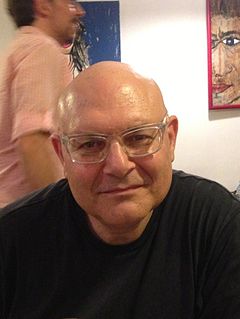A Quote by Elliott Colla
In translation studies we talk about domestication - translation styles that make something familiar - or estrangement - translation styles that make something radically different. I use a lot of both in my translation, and modernism does both. For instance, if you look at the way James Joyce presents Ulysses, is that domesticating a classic? Think of it as an experiment in relation to a well-known text in another language.
Related Quotes
I don't speak any languages well enough to make an expert assessment on writing in translation, but since I'm interested in awkwardness in prose, I find I like the way translated texts can sometimes acquire awkwardness in the process of translation. There's a discordance translation can create which I think is sometimes seen as a weakness but which I think can be a really interesting aspect of the text.
There is an old Italian proverb about the nature of translation: "Traddutore, traditore!" This means simply, "Translators-traitors!" Of course, as you can see, something is lost in the translation of this pithy expression: there is great similarity in both the spelling and the pronunciation of the original saying, but these get diluted once they are put in English dress. Even the translation of this proverb illustrates its truth!
The practice of translation rests on two presuppositions. The first is that we are all different: we speak different tongues, and see the world in ways that are deeply influenced by the particular features of the tongue that we speak. The second is that we are all the same - that we can share the same broad and narrow kinds of feelings, information, understandings, and so forth. Without both of these suppositions, translation could not exist. Nor could anything we would like to call social life. Translation is another name for the human condition.
General editors' preface The growth of translation studies as a separate discipline is a success story of the 1980s. The subject has developed in many parts of the world and is clearly destined to continue developing well into the twenty-first century. Translation studies brings together work in a wide variety of fields, including linguistics, literary study, history, anthropology, psychology, and economics. This series of books will reflect the breadth of work in translation studies and will enable readers to share in the exciting new developments that are taking place at the present time.
Translation is a kind of transubstantiation; one poem becomes another. You can choose your philosophy of translation just as you choose how to live: the free adaptation that sacrifices detail to meaning, the strict crib that sacrifices meaning to exactitude. The poet moves from life to language, the translator moves from language to life; both, like the immigrant, try to identify the invisible, what's between the lines, the mysterious implications.
































